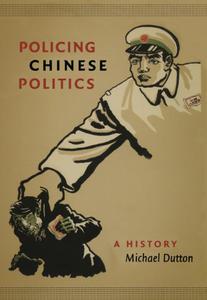
Michael Dutton, "Policing Chinese Politics: A History"
English | 2005 | pages: 427 | ISBN: 0822334771 | PDF | 2,1 mb
Beginning with the bloody communist purges of the Jiangxi era of the late 1920s and early 1930s and moving forward to the wild excesses of the Cultural Revolution, Policing Chinese Politics explores the question of revolutionary violence and the political passion that propels it. "Who are our enemies, who are our friends, that is a question germane to the revolution," wrote Mao Zedong in 1926. Michael Dutton shows just how powerful this one line was to become. It would establish the binary division of life in revolutionary China and lead to both passionate commitment and revolutionary excess. The political history of revolutionary China, he argues, is largely framed by the attempts of Mao and the Party to harness these passions.
The economic reform period that followed Mao Zedong's rule contained a hint as to how the magic spell of political faith and commitment could be broken, but the cost of such disenchantment was considerable. This detailed, empirical tale of Chinese socialist policing is, therefore, more than simply a police story. It is a parable that offers a cogent analysis of Chinese politics generally while radically redrafting our understanding of what politics is all about. Breaking away from the traditional elite modes of political analysis that focus on personalities, factions, and betrayals, and from "rational" accounts of politics and government, Dutton provides a highly original understanding of the far-reaching consequences of acts of faith and commitment in the realm of politics.
Links are Interchangeable - No Password - Single Extraction



